Hercules: Hero and Victim, Part 2
|
|
Today I’m going to finish up my 2-part article on Hercules (Part 1 covered his origin, his “twelve labors”, and his growing wisdom). Once again, I will quote from Bulfinch’s Mythology (a series including The Age of Fable, or Stories of Gods and Heroes), by Thomas Bulfinch; God, Heroes and Men of Ancient Greece, by W.H.D. Rouse; and Mythology, by Edith Hamilton. For this second part, I’ve also sourced Sophocles’ Trachiniae and Ovid’s Metamorphoses Book IX.
As I mentioned in the previous post, I had the good fortune as a kid of seeing, in their first theatrical showings, Hercules (1958) and Hercules Unchained (1959), both starring former body-builder and Mr. America, Steve Reeves; as well as Ray Harryhausen’s classic, Jason and the Argonauts (1963), where an older Hercules was wonderfully portrayed by Nigel Green. These led me to my grade school library, where I borrowed and devoured every book on Greek and Roman mythology I could find. In high school and afterward, I discovered such books by such scholars as Edith Hamilton, Thomas Bulfinch, W.H.D. Rouse, Norma Lorre Goodrich, Michael Grant, Carl Fischer, and Sir Richard Burton. Thus, Hercules was my introduction to Greek Mythology, helped along by what my Dad knew and told me. Later, I became interested in Norse, Celtic, and other mythologies, which eventually led the way to Sword and Sorcery, and Heroic Fantasy.
This post will cover Hercules’ temper, tragedy, and passing.
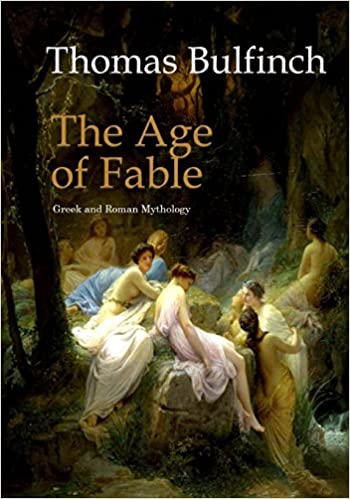 |
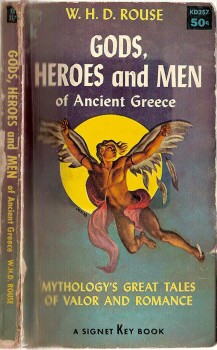 |
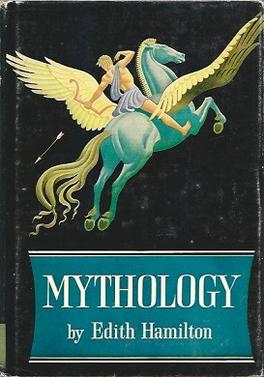 |
The Temper of Hercules
An example of Hercules’ volatile emotions occurs during the quest for the Golden Fleece. In despairing grief over the loss of Hylas, his armor-bearer, Hercules leaves the Argo and deserts Jason and the other Argonauts to go look for his friend. As Edith Hamilton wrote, “This power of deep feeling in a man of his tremendous strength was oddly endearing, but it worked immense harm, too.” Hercules had sudden outbursts of furious anger which were always fatal to the often-innocent victims of his rage. Once the anger had passed and his temper had cooled, Hercules would show disarming penitence and agree to suffer any punishment; of course, no punishment could be inflicted upon him without his consent. More than once he was a victim of his own hot temper and uncontrollable rage.
One time, in a fit of madness, Hercules killed his friend Iphitus and was condemned to become the slave of Queen Omphale of Lydia. While in her service he (according to Thomas Bulfinch):
“. . . lived effeminately, wearing at times the dress of a woman, and spinning wool with the handmaidens of Omphale, while the Queen wore his lion’s skin.”
Hercules’ own temper brought about this humiliation, and thus he was mocked, treated as a fool and ordered about like a slave. Yet Hercules faced his ordeal in a manner most befitting a hero of his stature—with courage and dignity. Not once did he attempt to escape or seek revenge.
Another time he visited his friend, Admetus, whose wife had just died. Hercules did not know this, and save for the manner of his dress, Admetus showed no trace of mourning. When Hercules sensed something amiss, he asked who had died, and was told only that a servant of the house had passed away. Hercules wanted to leave, but Admetus begged him to stay. Then, while Admetus attended the funeral, Hercules got drunk and began to sing. The servants chided him for his lack of respect, and Hercules protested, saying there was no intended disrespect, for the dead woman was a stranger to him. He was then told that it was Admetus’ wife who had died, and his shame was absolute. “Then he did as he always did, he heaped blame upon himself. . . As always, too, his thoughts turned quickly to find some way of atoning,” to quote Edith Hamilton. Thus, Hercules went down again to Hades, fought and defeated Death, and returned with Admetus’ wife. This shows Hercules’ character as the ancient Greeks saw it:
“… his simplicity and blundering stupidity; his inability not to get roaring drunk in a house where some was dead; his quick penitence and desire to make amends.”
The Tragedy of Hercules
As mentioned in Part 1, Hercules could only be defeated by supernatural means, and the greatest of his enemies proved to be Fate itself, and perhaps a touch of irony, as well.
Hercules’ wife was Deianira, whom he met while in the service of Queen Omphale. She was the beautiful daughter of the king of Calydon “and was wooed by the god of the great river Achelous, which runs through the country,” wrote W.H.D. Rouse. Both Sophocles and Ovid claim that, having wrestled and defeated Achelous, god of the Achelous river, Hercules took Deianira as his wife. Traveling to Tiryns, they reached a fast-flowing river where the centaur Nessus acted as ferryman. Nessus offered to help Deianira across the river, while Hercules swam to the opposite bank. But true to the archetype of the mischievous centaur, Nessus tried to steal Deianira away while Hercules was still in the water. Taking Deianira upon his back, Nessus started to run off with her, but she cried out in fear. Hearing her cry as he reached dry land, an enraged Hercules shot the centaur with arrows dipped in the poisonous blood of the Lernaean Hydra. Thinking of revenge, Nessus told Deianira to take some of his blood to use as a charm if Hercules ever fell in love with another woman. Deianira did as the centaur bid her, and it was not long afterward when she had occasion to use the blood-charm.
Sometime later, during one of his victorious battles, Hercules had taken prisoners, and among them was a fair maiden named Iole, of whom he was overly fond. As he prepared to make a sacrifice to the gods in honor of his victory, he sent a message home to his wife, asking her to send him his ceremonial robe. Says Bulfinch:
“Deianira, thinking it a good idea to try her love-spell, steeped the garment in the blood of Nessus.”
As soon as Hercules donned the robe it stuck to his flesh and caused him great pain. Wrenching off the robe, he tore away pieces of his flesh, and in his frenzy, he seized Lichas, the servant who had brought him the robe, and hurled him out to sea. Fatally wounded, Hercules took to ship and returned home to his wife.
Upon seeing what she had unwittingly done, Deianira went out and hung herself, as Judas did after betraying Christ, touching back on what I wrote in Part 1 of this article. Preparing himself for death, Hercules ascended Mount Oeta, where he built a funeral pyre of trees and commanded a servant to supply the torch. He then laid himself down upon the pyre “with a countenance as serene as if he were taking his place at a festal board,” and the flames consumed his body.
The Passing of Hercules
According to Zeus, however, only Hercules’ mortal-half could be destroyed: his mother’s share. What Hercules had derived from his father was immortal. Said Zeus:
“I shall take him, dead to earth, to the heavenly shores, and I require of you all to receive him kindly. If any of you feel grieved at his attaining this honor, yet no one can deny that he has deserved it.”
The gods gave their assent, and even jealous Hera could not disagree. Hercules was taken to Mount Olympus to dwell. He was even reconciled with Hera, who gave her daughter Hebe to him in marriage.
“And so, you see Heracles led the life he had chosen when he was a young man,” wrote the scholar Rouse. Hercules spent a good part of his life expiating one unfortunate deed after another, never rebelling against the almost impossible demands placed upon him. “Sometimes he punished himself when others were inclined to exonerate him,” Hamilton tells us. Hercules was a victim of his own flawed humanity, and his life was filled with tragedy. Yet in the end he won the honor and glory Virtue had promised him, gaining his rightful place among the gods. “But it is not easy to imagine him contently enjoying rest and peace, or allowing the gods to do so, either.” I can’t imagine that, either, for above all else, that Hercules was quite a character!
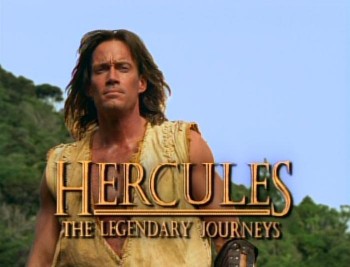 |
In Conclusion. . .
I had heard once that, after the success of the film Jason and the Argonauts, there were plans to make a movie about Hercules, with possibly Nigel Green reprising a role I thought he mastered quite well, and with special effects by the maestro, Ray Harryhausen. Perhaps it was nothing more than Hollywood “urban” legend, and alas, no such film was ever made. At least two films have been made in the 21st century, and both succeeded in leaving me a bit disappointed. The TV series Hercules: The Legendary Journeys, with Kevin Sorbo in the title role, was its own separate thing; it was enjoyable, at times a little silly, and it often took great liberties with the mythos of “the strongest man in the world.”
There are many other recorded adventures of Hercules throughout mythology, and many of these would make for excellent films. But in my opinion, “Hollywood” just can’t or doesn’t care to get it right. For instance, in 2014, a pulse of three Hercules movies released in rapid succession, but they did not fill the void for many. Perhaps a miniseries, as was done in 1997 with The Odyssey, starring Armand Assante as Odysseus/Ulysses? But for the 7 and 8-year-old boy in me, Ancient Greece will always look to me as I first saw it on the big screen in Steve Reeves’ Hercules and Hercules Unchained, and, to a lesser extent, the pepla sequels and numerous series that followed.
I have a pretty decent DVD of Hercules Unchained, although it’s full-frame and not widescreen. Of the three DVD copies of Hercules I purchased over the years—all are of poor quality, and not in widescreen format. For those of us who love these films, there definitely needs to be a remastering of both films, in widescreen, and put out on Blu-ray.
I hope you’ve enjoyed my article, and I thank you for stopping by.
2014 Hercules Movies
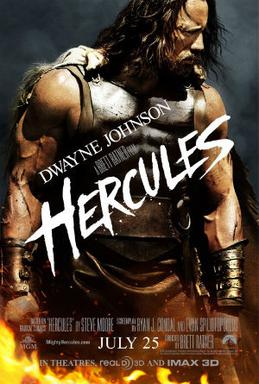 |
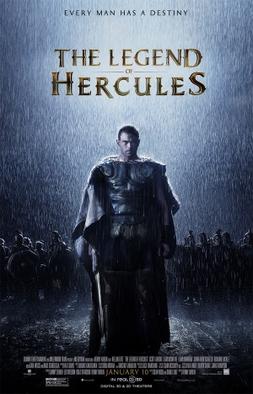 |
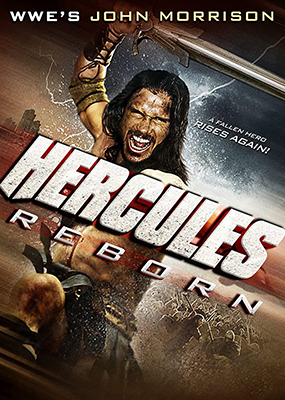 |
Joe Bonadonna is the author of the heroic fantasies Mad Shadows: The Weird Tales of Dorgo the Dowser (winner of the 2017 Golden Book Readers’ Choice Award for Fantasy); Mad Shadows II: Dorgo the Dowser and the Order of the Serpent; the space opera Three Against The Stars; the Sword-and-Planet space adventure, The MechMen of Canis-9; and the Sword & Sorcery adventure, Waters of Darkness, in collaboration with David C. Smith. With co-writer Erika M Szabo, he wrote Three Ghosts in a Black Pumpkin (winner of the 2017 Golden Books Judge’s Choice Award for Children’s Fantasy), and The Power of the Sapphire Wand. He also has stories appearing in: Azieran—Artifacts and Relics, GRIOTS 2: Sisters of the Spear, Heroika: Dragon Eaters, Poets in Hell, Doctors in Hell, Pirates in Hell, Lovers in Hell, and the upcoming Mystics in Hell; Sinbad: The New Voyages, Volume 4; and most recently, in collaboration with author Shebat Legion, he wrote Samuel Meant Well and the Little Black Cloud of the Apocalypse. In addition to his fiction, he has written a number of articles and book reviews for Black Gate online magazine.
Visit his Amazon Author or his Facebook Author’s page: Bonadonna’s Bookshelf
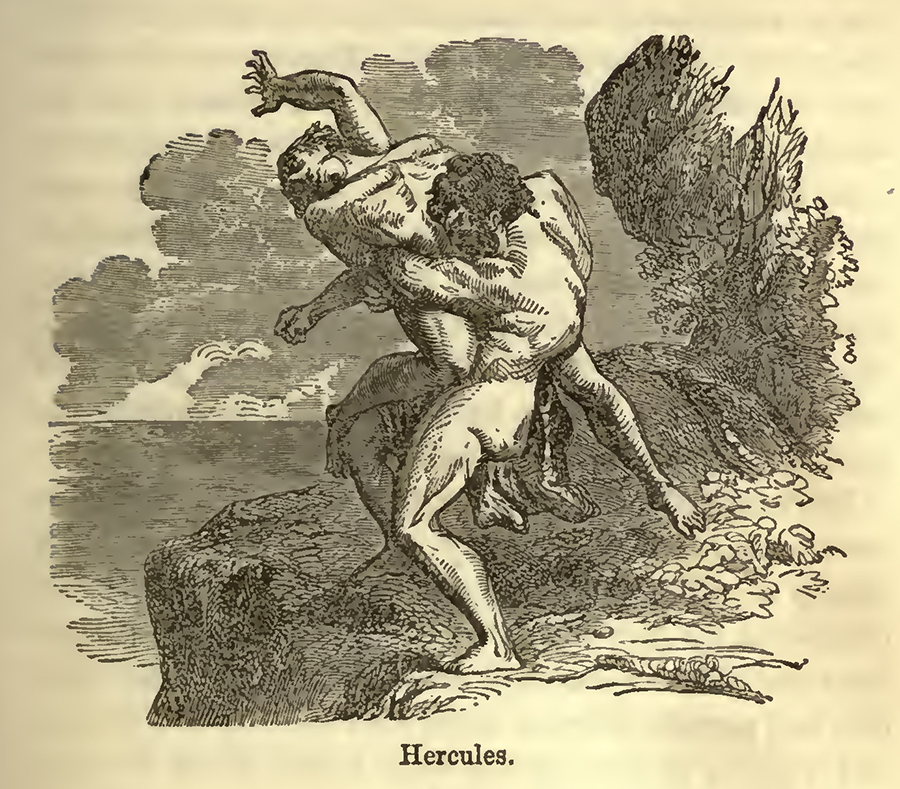

Seth Lindberg – thanks for a great layout!
Great article. Thinking about some of your heroes you write (Dorgo, various one in Heroes in Hell series)… your protogasinst may be in situations like Hercules, but they aren’t strongmen per see. Do you have a character modeled after him?
Seth Lindberg – THAT is an excellent question! Short answer: no. (Well, Mose Cooper and Angus Buchanan in Waters of Darkness come closest, but those guys are half Dave Smith’s, too.) I was never drawn to write a character like Hercules or Conan. Maybe I should try on of these days?